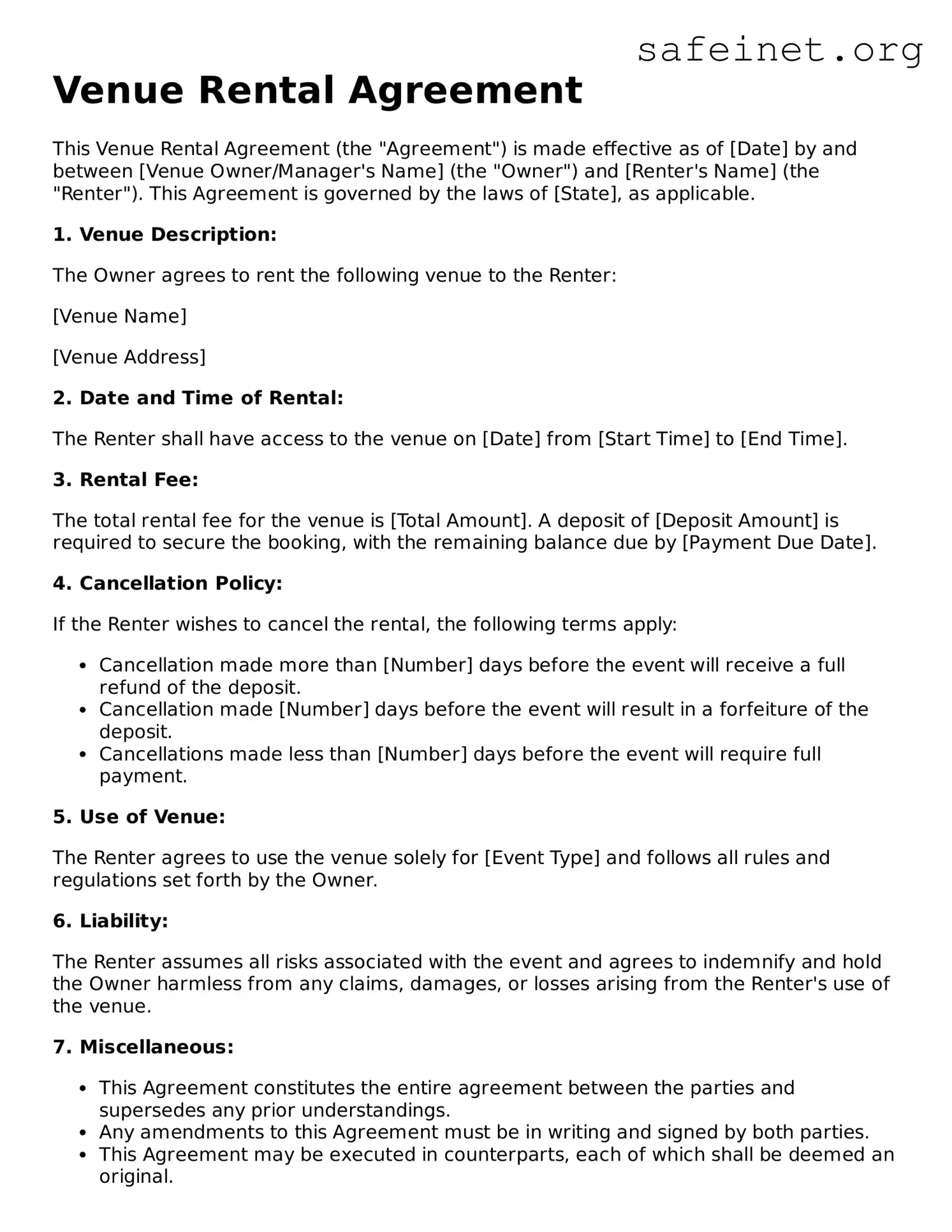Venue Rental Agreement
This Venue Rental Agreement (the "Agreement") is made effective as of [Date] by and between [Venue Owner/Manager's Name] (the "Owner") and [Renter's Name] (the "Renter"). This Agreement is governed by the laws of [State], as applicable.
1. Venue Description:
The Owner agrees to rent the following venue to the Renter:
[Venue Name]
[Venue Address]
2. Date and Time of Rental:
The Renter shall have access to the venue on [Date] from [Start Time] to [End Time].
3. Rental Fee:
The total rental fee for the venue is [Total Amount]. A deposit of [Deposit Amount] is required to secure the booking, with the remaining balance due by [Payment Due Date].
4. Cancellation Policy:
If the Renter wishes to cancel the rental, the following terms apply:
- Cancellation made more than [Number] days before the event will receive a full refund of the deposit.
- Cancellation made [Number] days before the event will result in a forfeiture of the deposit.
- Cancellations made less than [Number] days before the event will require full payment.
5. Use of Venue:
The Renter agrees to use the venue solely for [Event Type] and follows all rules and regulations set forth by the Owner.
6. Liability:
The Renter assumes all risks associated with the event and agrees to indemnify and hold the Owner harmless from any claims, damages, or losses arising from the Renter's use of the venue.
7. Miscellaneous:
- This Agreement constitutes the entire agreement between the parties and supersedes any prior understandings.
- Any amendments to this Agreement must be in writing and signed by both parties.
- This Agreement may be executed in counterparts, each of which shall be deemed an original.
8. Signatures:
By signing below, the parties agree to the terms outlined in this Agreement.
Owner Signature: ______________________ Date: ____________
Renter Signature: ______________________ Date: ____________
